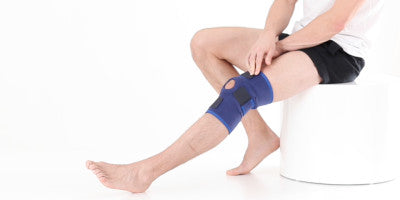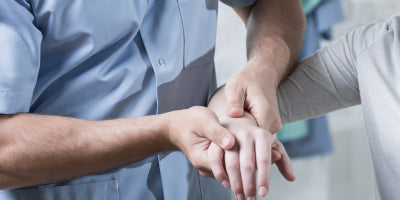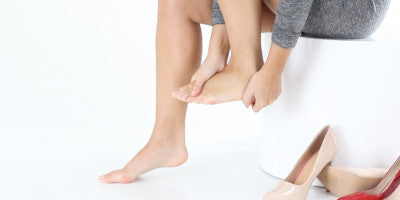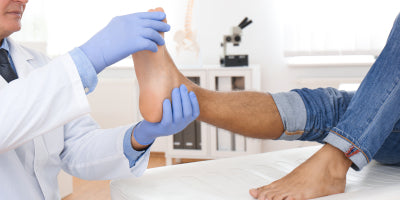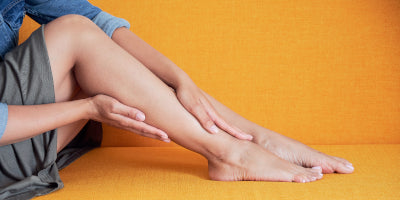How to cope when elective surgeries are cancelled

Over the last year, we have received hundreds of questions from individuals who have had non-emergency surgeries in the UK postponed or cancelled due to limited resources in the NHS. Many are concerned or worried about how to manage their injury or complaints as they wait eagerly for the surgery to go ahead.
To help others in a similar situation, we’re sharing the most commonly asked questions and our answers relating to three groups of individuals whose elective surgeries have been cancelled to offer support to those in need of a short-term solution.
Group 1 – elective joint replacement surgery

Did you know, among the nearly 10 million people waiting for surgery (in the UK) there were around 100,000 patients who had their joint replacement surgeries cancelled during the first wave of COVID-19? This is set to continue to rise with most hospitals continuing to function at a reduced capacity [1]. The cancellations of joint replacement surgeries have left an ever increasing group of individuals struggling with daily activities due to severe pain or mobility issues, which in turn can have a knock on effect on a person’s mental wellbeing.
“My elective joint replacement surgery has been cancelled, what shall I do while I wait?”
Review your diet

If your BMI is particularly high, take a look at your diet. A higher BMI can have an increased risk of complications during and after surgery so using this waiting time to review your diet and making changes to try drop your BMI down is a good starting point. This is especially important if pain and mobility issues are limiting the activity you are able to currently do.
Pain management
Alongside mobility issues, pain will be a limiting factor for most individuals. While getting pain to completely go may not be possible before surgery, reducing pain to a manageable level either for a long period or shorter frequent periods can have a major effect on your daily life and mental health.
Speak with your GP or a dedicated pain management team to talk through your specific options. Neo G has also recently launched NeoTENS – a wireless, portable TENS machine. Provided this is suitable for you then TENS machines have been used to channel pain signals going to the brain, allowing periods of pain relief while using the device.
Using heat therapy can also help relieve pain, especially if surrounding muscles and joints are compensating. This can be as simple as a hot bath or using specialist heat therapy products such as wheat bags and heat packs. Neo G offers two versions of heat therapy in the form of the Hot and Cold Therapy Disc and Hot and Cold Therapy Pack, which can easily mould around joints or cover large areas such as the shoulders and back.
Exercise

Once pain management is under control then, if your mobility allows, getting regular exercise such as walking can not only help with weight management and cardiovascular health but also will help to strengthen those muscles surround the joint that is due to be replaced. If you are unable to get out and exercise due to a lack of mobility, then still doing strengthening exercises to muscles surrounding the joint will help both pre-surgery and post-surgery. Exercises can be done in a seated position if needed and can involve raising and lowering your leg against some form of resistance such as an elasticated band or towel. As strength progresses you can move on to weighted exercises. The stronger you can make the muscles pre-surgery will help with your recovery post-surgery and you may find that a lot of the exercises you do before will be part of your rehabilitation program post-surgery.
Group 2 - Arthroscopy for various orthopaedic procedures
“Can you offer some advice on how to manage the constant niggle in my knee?”
Similarly to joint replacements, weight management is going to play a big role while you are waiting for your procedure, especially if your complaint is in the lower body. Excess weight pushing down on a weak or injured knee joint has the potential to cause further issues on top of your original complaint, which then may lead to an arthroscopy not being the most suitable option for the procedure and risk a longer recovery time post-surgery.
While continuing to exercise and strengthen the area surrounding the joint, we would also recommend supporting the area to avoid further damage. At Neo G we have a wide variety of supports and braces, which are ideal for complaints that typically could have an arthroscopy, such as cartilage damage and carpal tunnel syndrome. Our Variable Compression Support range offers one size supports made from heat therapeutic neoprene which will use the heat from the body to gently warm the area it is in contact with great for pain relief. Also, as you are able to adjust the compression level by tightening or loosening the support, you are fully in control of the support you need at various points of your recovery, so if you find that you have some excess swelling you can reduce the support if needed without having to purchase another sized product.
Group 3 – Elective Hernia operations
“What can I do to manage pain whilst I wait for my hernia surgery?”
During the pandemic we have received numerous calls relating to hernias and if our products can help while people wait to be seen for their repairs. We currently offer three types of hernia belts: upper abdominal, single lower hernia and a double lower hernia. All of our belts have been designed to stop the hernia from continuing to come through the opening and comprise of a small pad that will sit on the hernia and attaches to the support belt. This can then be tightened to provide further pressure on the pad. Our supports will be suitable for you providing that you are able to push the hernia back in easily and not protrude out straight away to the starting position.
When to seek further help?

Unlike the other procedures, hernias can turn to be a serious medical emergency so if any of the following symptoms occur please seek medical advice urgently:
- sudden, severe pain
- being sick
- the hernia becomes firm or tender, or cannot be pushed back in
Finally, with all these procedures and many others that have been cancelled, we know this can be frustrating and impact our mental wellbeing so if you are feeling this is impacting you please talk to someone and let them know about your struggles. This could be reaching out to a family member or speaking to specialist care, but don’t suffer alone.
As with all information please check that it is relevant to your individual circumstances and if you are ever unsure check with a medical professional in charge of your care.
References
[1]https://www.thelancet.com/journals/lanrhe/article/PIIS2665-9913(21)00001-1/fulltext
Medical Grade Compression Help to ease symptoms of tired, aching or swollen legs. Constructed from specialist material for comfort, softness and breathability. Find out more here.

If its rest and recovery you need, our hot and cold therapy range offers just that. While heat therapy helps to target muscle and joint pain by relaxing muscles and improving blood flow, cold therapy works to tackle muscle swelling, soothing aches and pains.
Read more in our full Hot & Cold Therapy post.



